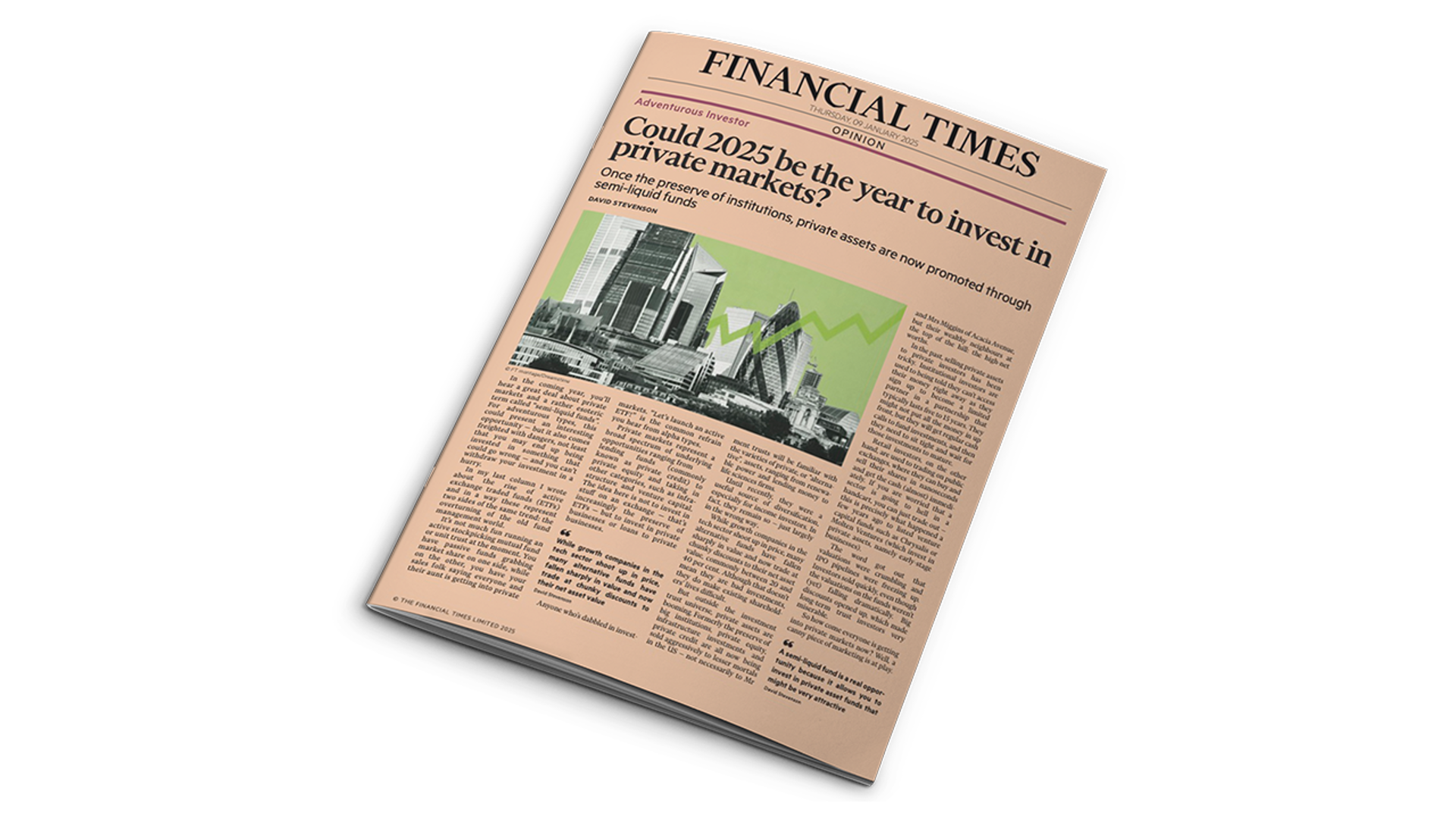That was the question posed by Financial Times columnist David Stevenson in his article last weekend (you can request for a copy below).
For those not familiar with the term, private markets are a broad class of investments that are not traded on public exchanges – such as the London Stock Exchange. They include private equity, private credit, infrastructure and other real assets.
The FT article gives a balanced view of the pros and cons of investing in private markets. I’d recommend having a read. One main area of focus is the rise of semi-liquid funds.
In contrast to traditional ‘closed-ended’ funds, semi-liquid funds can be entered and redeemed on rolling basis, usually once a quarter subject to liquidity. They also require much smaller investment minimums than traditional private markets funds – sometimes as low as £10,000. This might make them appealing to eligible individual investors.
Important: The information on this website is for experienced investors. It is not a personal recommendation to invest. If you’re unsure, please seek advice. Investments are for the long term. They are high risk and illiquid and can fall as well as rise in value: you could lose all the money you invest
Three key considerations for investors
In the article, David Stevenson touches on three key points which we’ve talked about at length.
- With companies staying private for longer “ignoring private businesses increasingly looks like a reckless move”. As we’ve noted before, public markets represent a small (<10%) and shrinking slice of the total opportunity set for investors. If you want access to the broadest range of companies, you may need to look to private markets.
- Semi-liquid funds could be a “real opportunity” for smaller investors. Traditional closed-ended funds were only accessible to big institutions and the ultra-wealthy. This meant that many of the corporate world’s most exciting growth stories weren’t available to individual investors. Fortunately, this is no longer the case.
- This year might be “a decent one for private equity”. The FT points to resilient sectors with high recurring revenue – such as software, business services, education and healthcare – as potential pockets of opportunity. As always though, it’s important to select a manager with a strategy and credentials that suit your investment objectives.
The Wealth Club Private Markets platform
The FT article goes on to mention Wealth Club’s Private Markets platform which gives qualifying investors access to some of the best-known specialist managers.
Launched in November, the platform’s aim is to make investing in semi-liquid private market funds as easy as buying a unit or investment trust.
Note that private markets investments are high risk and illiquid and should be seen as a long-term commitment. Any returns are not guaranteed and could take several years to generate a return, and you could lose the capital you invest. Through Wealth Club you’ll be able to see a directory of private market funds, but for more details you’ll first need to quality as a high net worth or sophisticated investor.
To access our Private Markets platform and find out if you’re potentially eligible to invest in private market funds – please use this link.
Wealth Club aims to make it easier for experienced investors to find information on – and apply for – investments. You should base your investment decision on the offer documents and ensure you have read and fully understand them before investing. The information on this webpage is a marketing communication. It is not advice or a personal or research recommendation to buy any of the investments mentioned, nor does it include any opinion as to the present or future value or price of these investments. It does not satisfy legal requirements promoting investment research independence and is thus not subject to prohibitions on dealing ahead of its dissemination.

